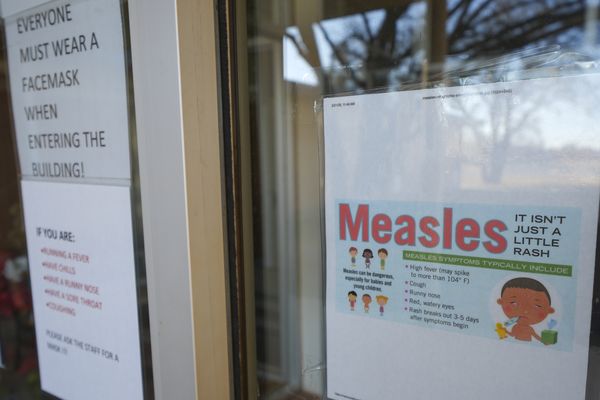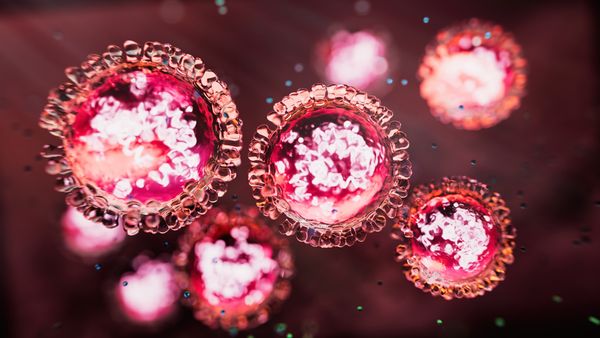
As New York’s annual parade in support of Israel worked its way down Fifth Avenue on Sunday, a group of Israeli citizens shouted from the sidelines.
They waved signs demanding a ceasefire in Gaza and the release of the Israelis held by Hamas. They chanted “shame” as two rightwing Israeli cabinet ministers, who have defended the killing of tens of thousands of Palestinians civilians, passed by.
Above all, the protesters sought to challenge those Americans who regard support for the war in Gaza as a litmus test of loyalty to Israel.
“Some people booed us because they saw the word ‘ceasefire’ even though that’s the best way to bring the hostages home,” said Noa Fort, one of the organisers of the Israelis for Peace protest on Sunday.
A few hours later, the same group led a vigil in Union Square, where they have gathered on many weekends since the 7 October Hamas attack and the resulting Israeli assault on Gaza. The protesters tell anyone who will listen that opposition to the war in Gaza is also support for Israel, or a freer and more equal version of it.
That’s become an increasingly difficult position for the peaceniks who find themselves under attack from all sides, as being both apologists for, and not loyal to, Israel.
On the one side are hardline pro-Israel groups and prominent Jewish American organisations that have given unwavering support to Israel’s months-long bombardment of Gaza with little more than lip service paid to the Palestinians killed. At times they have accused critics of the war of denying Israel the right to defend itself and of antisemitism, and Jewish opponents of failing as Jews.
On the other side are pro-Palestinian protesters who increasingly reject working with Israelis of any political stripe on the grounds that they are Zionists. Some of those protesters also view discussion about the suffering of Israeli captives held by Hamas as cover for justifying the war.
One of the Israeli protesters, who gave her name only as Stav, recently returned to New York after defending trucks carrying aid to Gaza from attacks by Israelis who claim the food and medicine go to sustain Hamas.
“After October 7, I’ve never felt as politically isolated in my life on all sides. It’s not that my views have changed, it’s that the spectrum of collaborators has significantly narrowed,” she said.
Stav said that before the Hamas attack, she worked with an array of US groups pursuing sometimes disparate goals – from seeking to protect Israel’s judicial system from a power grab by the prime minister, Benjamin Netanyahu, to ending the occupation of the Palestinian territories. She said that differences on some issues were generally not an obstacle to working together on others.
That has changed.
“After October 7, everyone’s become a lot more siloed. There’s a lot more litmus tests to even get to the point where you actually talk about the issue that you want to be collaborating about,” said Stav.
“There’s no place to have a conversation about the actual facts on the ground that takes into account the fact both Israelis and Palestinians are going to continue living between the river and the sea in some constellation, that nobody’s going anywhere. There’s 14 million people there. We’re not going to ethnically cleanse half of them, no matter which half.”
Israelis in the US who oppose the occupation say they are increasingly isolated from pro-Palestinian activists they used to work with, who have shifted toward demands for renunciations of Zionism and Israel, alongside ambiguous chants, such as: “From the river to the sea, Palestine will be free.”
Tamar Glezerman, a co-founder of Israelis for Peace whose aunt was killed by Hamas on the Be’eri kibbutz along with about 100 other people, said she welcomes the scale of the protests against the war and the broader spotlight that has thrown on to Israel’s domination of the Palestinians.
But she launched the weekly protest in Union Square to make the voices of her brand of leftwing Israelis heard without needing “to pass purity tests to enter the room”.
“Some tests we won’t be able to pass and they’re also not fair to demand them of Israelis. We’re not going to dismantle the only country where my family lives,” she said.
“I don’t define myself as Zionist or non-Zionist. I did in the past but now it has become empty of meaning. It could mean anything between someone who believes in two states coexisting peacefully to code for Jews who don’t deserve safety or life. I’ve heard it used in all ways.
“So if somebody wants to discuss Zionism with me, I would like for them to define it first. The way that it’s being used now I don’t think is helpful. It’s detrimental, actually. I read around 33% of Palestinians in the West Bank and 62% of Palestinians in Gaza prefer a two-state solution. So are they Zionists?”
The Israeli peaceniks are hemmed in on the other side by support for the war among fellow Israelis, the steadfast support for Israel among US political leaders and the militancy of parts of the Jewish community in the US.
During Sunday’s parade, the Democratic Senate majority leader, Chuck Schumer, joined in chants calling for the military defeat of Hamas. New York City’s mayor, Eric Adams, also endorsed the war.
“We don’t want to see any innocent person die but we have to deal with the hate of Hamas and it must be dismantled and destroyed,” he said.
A recent poll found that many American Jews do not share that view. About one-third agreed with the claim that Israel is committing genocide in Gaza while only 28% said demonstrations in the US against the war are driven, as some hardline pro-Israel groups claim, solely by animus toward the Jewish state.
The Jerusalem Center for Public Affairs, which conducted the poll, said the results reflect “a shift in how American Jewry relates to the current Israeli government and the broader conflict”.
However, that nuance is not often heard from influential Jewish American organisations that claim to speak for the diaspora in the US and are often fervent defenders of Israeli government policies, including the present war.
Glezerman said she understands that “American Jews feel this kinship and this connection” to Israel but notes that many do not understand its complexities or have an overly sentimental view of the country.
“That’s why we say we’re Israelis. It’s not because it’s a fun, easy thing to be. It’s because it gives us a mandate to say: ‘So these people in your community are telling you that the only way to support Israel is through blanket support for the military and all these other things.’ And I am here saying, please do not,” she said.
Some of the Israeli protesters have been here before. In 2014, Jewish American organisations rallied in support of Israel’s assault on Gaza known as Operation Protective Edge in which more than 2,300 Palestinians were killed, two-thirds of them civilians.
“During Protective Edge, we addressed that part of American Jewry with an open letter that said if you want to support Israel, support a normal life for us, support our possibility to grow up in peace, support our possibility to grow untraumatised, support our possibility to be like a normal country and not have a mandatory draft, support our possibility to not be oppressing other people,” said Glezerman.
“But if you want to support us by blindly supporting the Israeli government, and not just this one but government after government sacrificing the people for an idea, you’re not supporting us. There is no pro-Israel or pro-Palestine. It’s either you’re pro both or pro neither.”
As Israeli protesters in Union Square see it, too often the American public is being asked to choose between recognising the terrible toll of the war on civilians in Gaza, who are among the majority of the more than 36,500 Palestinians killed, and the suffering of the 80 Israelis still believed to be alive and held by Hamas.
“We did not really find ourselves in either of the protests that were available to us because we didn’t make a differentiation between victims,” said Glezerman.
“There has been a phenomenon, ubiquitous on both sides of this discourse, of downplaying the trauma or the horror of what is happening to victims from the opposite side. The discourse is such that if you speak about the hostages, a large part of the American left will think that you are pro continuing the war.”
On the other hand, she said, many on the pro-Israel side don’t see the tension inherent in advocating for the hostages while supporting the war.
“If pro-Israel Americans think that supporting the war is supporting the hostages, perhaps they’re not getting all of the information. So when Americans glaze over that in favour of kind of a more coherent narrative that doesn’t have any glitches, that’s less helpful than they could be,” Glezerman said.
Despite the challenges navigating their own place in the protest movement, the Israeli peaceniks draw strength from the attention on the broader conflict after years in which the Palestinians were all but abandoned by the international community while Israel tightened its grip on the occupied territories.
“One bright light in all of this is that we’re not alone in our demand for justice and equality,” said Fort.
Glezerman agrees.
“I don’t think we’ve been as close to a Palestinian state as we are now since Netanyahu came to power. I’m not saying we’re very close, but the discourse has completely changed,” she said.







